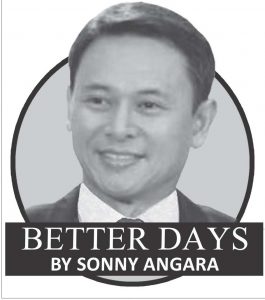Last July, New York Times columnist Lindsey Crouse wrote that despite the issues that constantly surround the Olympics—like the exorbitant amounts countries spend to host the quadrennial event; the doping scandals that were fueled by it; the way certain sports officials enriched themselves before the athletes; or how for this iteration, residents protested the decision to continue the Games on account of the pandemic—she was still going to watch this year. 
Crouse argued that the appeal of the Games has never really been the Olympics as an institution, but the Olympians themselves—their triumphs, their struggles, and their individual stories of extraordinary human achievement. And amid the raging pandemic, where many crave a measure of hope—or what Crouse described as a way to be “collectively inspired”—the Olympians’ triumphs can serve as a salve or as “an example to spur us forward.”
That’s exactly what our national athletes did for us Filipinos during the recently concluded Tokyo Olympics. We all bore witness to how their determination to win would not be hindered by the ongoing threat of COVID-19. After all, they secured the biggest Olympic medal haul since the Philippines participated in 1924. And somehow that speaks to our desire to emerge victorious once the pandemic ends.
We also saw how our winning national athletes persevered despite growing up through less-than-ideal circumstances. Eumir Marcial, for example, occasionally worked as a jeepney konduktor as a means to help his family get by. In addition, less than a year before the 2020 Olympics, his brother tragically passed away at a young age of 39. And while it would have been understandable for Marcial—who was in the United States at the time—to return to the Philippines and be with his family, he decided to push through with his training, noting that representing the country in the Olympics was what his late brother always wanted.
Carlo Paalam’s story is also an incredible tale of triumph. Paalam, who began his boxing career fighting in local “Boxing at the Park” events until he was discovered in 2009, used to be a scavenger in Cagayan De Oro. When he won the silver medal which coincidentally was made from recycled mobile devices, Paalam could not help but recall his days of collecting scraps from landfills, noting that his medal symbolized his life.
Silver medalist Nesthy Petecio, now a trailblazer in a sport more commonly associated with men, recalled in interviews that she started boxing as a means to earn extra income for her family. She would fight in inter-barangay tournaments knowing that, win-or-lose, she can earn enough for her family to buy food. In fact, Petecio’s debut fight was against a male opponent where she won. As numerous rewards and bonuses come pouring in from both the government and the private sector, Petecio has already said that these would go to her family as she does not want them—especially the younger ones—to go through the same hardships they previously went through.
Finally, gold medalist Hidilyn Diaz’s road to the 2020 Tokyo Olympics was far from being easy. Diaz, who started training with makeshift barbells while helping her family sell vegetables and fish on the street or at the markets, began her Olympian’s journey at the 2008 Beijing Olympics where she placed 11th out of the 12 competitors. At the 2012 London Olympics, she ended with “Did Not Finish” (DNF) after three unsuccessful attempts. But rather than be disheartened, Diaz used this experience to train harder, leading to a silver medal at the 2016 Rio Olympics and a gold at the 2020 Tokyo Olympics.
Outside of her Olympic journey, Hidilyn previously revealed that their life was challenging. There were many nights where her family had little to eat. In fact, her first aspiration was to become a banker so that her family would no longer have to worry about money. And now, other than the glory and prestige of becoming the first Filipino to win a gold medal in the Olympics, Hidilyn and her family might never have to worry about money again due to the numerous incentives that she will receive.
These stories about our national athletes pushing through and succeeding despite their humble backgrounds and origins inspire many Filipinos, especially those facing the uncertainties brought by the pandemic and its effects on our physical, mental, emotional and financial well-being. The incredible achievements of all of our athletes who qualified and participated in this year’s Olympics sends a collective message of hope that we will rise up again—“Faster, Higher, Stronger – Together.”
***
Sen. Sonny Angara has been in public service for 17 years. He has authored and sponsored more than 200 laws. He is currently serving his second term in the Senate.
***
E-mail: sensonnyangara@yahoo.com| Facebook, Twitter & Instagram: @sonnyangara/WDJ
